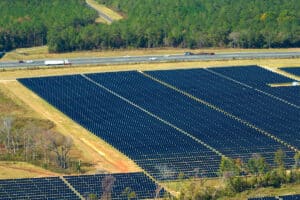As the world becomes increasingly aware of the need for renewable energy sources, many organizations are utilizing RECs, or renewable energy credits to strengthen their sustainability. In this article, we will explore the impact of these credits on the renewable energy industry.
Renewable energy credits have become an increasingly popular tool in promoting the growth of the renewable energy industry. They are a market-based instrument that allows businesses, organizations, and individuals to purchase the environmental benefits of renewable energy generation, without physically buying or using the electricity.
1) Increased Investment in Renewable Energy
One of the significant impacts of RECs on the renewable energy industry is the increased investment in renewable energy projects. These credits create a demand for renewable energy generation, and when the demand is high, the supply must also increase to meet it. This increased demand results in more renewable energy projects being developed, leading to a higher level of investment in the industry.
Read: Understanding Renewable Energy Credits
2) Reduced Greenhouse Gas Emissions
Another significant impact of RECs on the renewable energy industry is the reduction of greenhouse gas emissions. The credits encourage the generation of electricity from renewable sources such as wind, solar, and hydro. This, in turn, leads to a reduction in the amount of greenhouse gas emissions that would have been generated by traditional fossil fuel-based electricity generation. Overall, renewable energy credits create an economic incentive for renewable energy development and, therefore, promote the use of cleaner and more sustainable energy sources.
3) Increased Consumer Demand for Renewable Energy
RECs have also impacted the renewable energy industry by increasing consumer demand for renewable energy. As more people become aware of the benefits of renewable energy, they are seeking ways to reduce their carbon footprint and support clean energy. These credits provide a simple and accessible way for individuals and businesses to support renewable energy development and reduce their impact on the environment.
4) Job Creation in the Renewable Energy Sector
Lastly, RECs have had a positive impact on job creation in the renewable energy sector. The increased investment in renewable energy projects, resulting from the demand for credits, has led to the creation of new jobs in the industry. These jobs include roles in project development, construction, and operation and maintenance of renewable energy facilities. RECs have, therefore, not only promoted the growth of renewable energy but have also contributed to the growth of the renewable energy job market.
Read: Understanding Trading Renewable Energy Certificates: Everything You Need to Know
The impact of RECs on the renewable energy industry
RECs play a significant role in the renewable energy industry. By creating a market for renewable energy credits, they provide a financial incentive for organizations to invest in renewable energy sources. This, in turn, creates demand for renewable energy and helps to drive down the cost of renewable energy technologies.
One of the key benefits of RECs is that they help to level the playing field between renewable and non-renewable energy sources. Non-renewable energy sources receive significant government subsidies, which makes it difficult for renewable energy sources to compete on price. However, by purchasing RECs, organizations can support the growth of renewable energy sources and help to make them more competitive.
RECs also play a role in promoting renewable energy adoption by incentivizing renewable energy producers to generate more renewable energy. By creating a market for renewable energy credits, RECs provide a revenue stream for renewable energy producers, which encourages them to continue investing in renewable energy sources.
Finally, RECs help to increase transparency and accountability in the renewable energy industry. By tracking and trading renewable energy certificates, RECs provide a way for organizations to verify that the renewable energy they are purchasing is, in fact, renewable. This helps to prevent greenwashing and ensures that organizations are genuinely reducing their carbon footprint.
Read: How are Renewable Energy Credits (RECs) Valued?
Interested in implementing renewable energy?
If you’re looking to make the most of your renewable energy project, Renewable Energy Credits (RECs) can be a valuable asset in the energy industry. EnergyLink has a team of experts who can help you maximize the potential of RECs. We specialize in designing, building, and funding energy projects, and we can provide you with important economic impact data to inform your decisions. Click the button to get started or call us at (866) 218-0380 to speak with an expert. Interested in staying up-to-date on all the latest energy industry news? Join our bi-weekly newsletter below.






